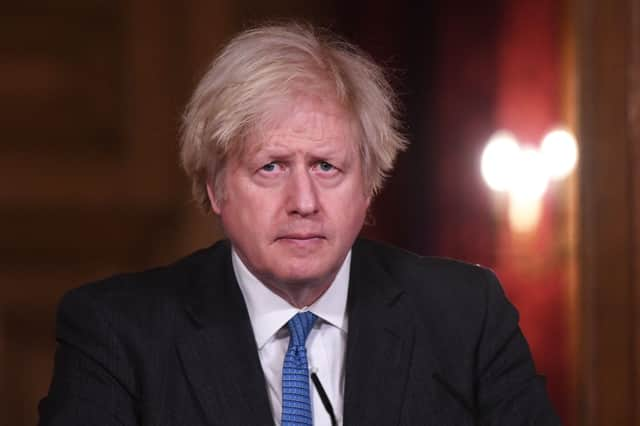Boris Johnson to unveil ‘cautious’ roadmap towards lifting England’s lockdown - what we know so far


Today (22 Feb), Prime Minister Boris Johnson will reveal his four step roadmap out of England’s lockdown.
Johnson is expected to make a statement to the House of Commons announcing the full details of the four step roadmap at 3:30pm.
Advertisement
Hide AdAdvertisement
Hide AdLater on in the evening, at 7pm, Johnson will then issue a press conference in Downing Street where he will explain his roadmap to the nation and also take questions.
‘Cautious roadmap out of lockdown’
Johnson said: “Today I’ll be setting out a roadmap to bring us out of lockdown cautiously. Our priority has always been getting children back into school which we know is crucial for their education as well as their mental and physical wellbeing, and we will also be prioritising ways for people to reunite with loved ones safely.
“Our decisions will be made on the latest data at every step, and we will be cautious about this approach so that we do not undo the progress we have achieved so far and the sacrifices each and every one of you has made to keep yourself and others safe.
“We have therefore set four key tests which must be met before we can move through each step of the plan.”
Four tests
The roadmap will outline the four steps to easing restrictions - before England moves on to the next step, the Government will examine the data to assess the impact of the previous easements.
This assessment will be based on these four tests:
- The vaccine deployment programme continuing successfully
- Evidence that shows vaccines are sufficiently effective in reducing hospitalisations and deaths in those vaccinated
- Infection rates do not risk surges in hospitalisations which would put unsustainable pressure on the NHS
- Whether the Government’s assessment of the risks is not fundamentally changed by new Variants of Concern
The Government says: “The four tests are currently being met so the first step will process from 8 March, at which point the top four priority cohorts for vaccinations - as determined by the independent JCVI - will have received a degree of immunity, three weeks after being offered their first dose.”
In a statement, the Government also explained that due to the current, “relatively uniform spread of the virus across the country”, restrictions will be eased step by step across the whole of England at the same time.
Schools reopening
School kids in England are expected to be able to return to their desks from 8 March, with outdoor after school sports and activities also allowed.
Advertisement
Hide AdAdvertisement
Hide AdLeisure activities in a public space, such as a park, will also be permitted between two people, which means that they would be able to sit down together for a coffee, drink or picnic.
Also from this date, care home residents in England will be allowed one regular visitor, where they will be able to meet indoors and hold hands. Visitors must wear PPE and be tested beforehand.
Health Secretary Matt Hancock said: “This is just the first step to getting back to where we want to be.
“We need to make sure we keep the infection rate down, to allow greater visiting in a step by step way in the future.”
Outdoor gatherings
From 29 March, outdoor gathering of either six people, or two households, will be allowed. It is understood that this also includes private gardens.
Also from this date, it is understood that outdoor sports facilities, such as tennis or basketball courts, will also reopen, with the return of adult and children’s sport.
‘Clear guidance is needed’
The Police Federation of England and Wales (PFEW) has urged policymakers in England and Wales to avoid “mixed messages” over future Covid-19 restrictions and regulations, after research appears to suggest that only 10 per cent of officers felt that their previously introduced powers were clear.
PFEW’s national chair John Apter said: “Given the fact that there have been more than 60 rule changes introduced during the pandemic, it comes as no surprise whatsoever that only 10 per cent of police officers who responded to our survey said they found the Covid-19 rule changes to be clear.
Advertisement
Hide AdAdvertisement
Hide Ad“We have been saying from the beginning, clear guidance on what people can and can’t do is needed; otherwise people will inadvertently fall foul of the law or may take advantage of the mixed messages.
“And it’s my colleagues who are on the frontline of these changes, continually playing catch up to get their heads around the latest information.”